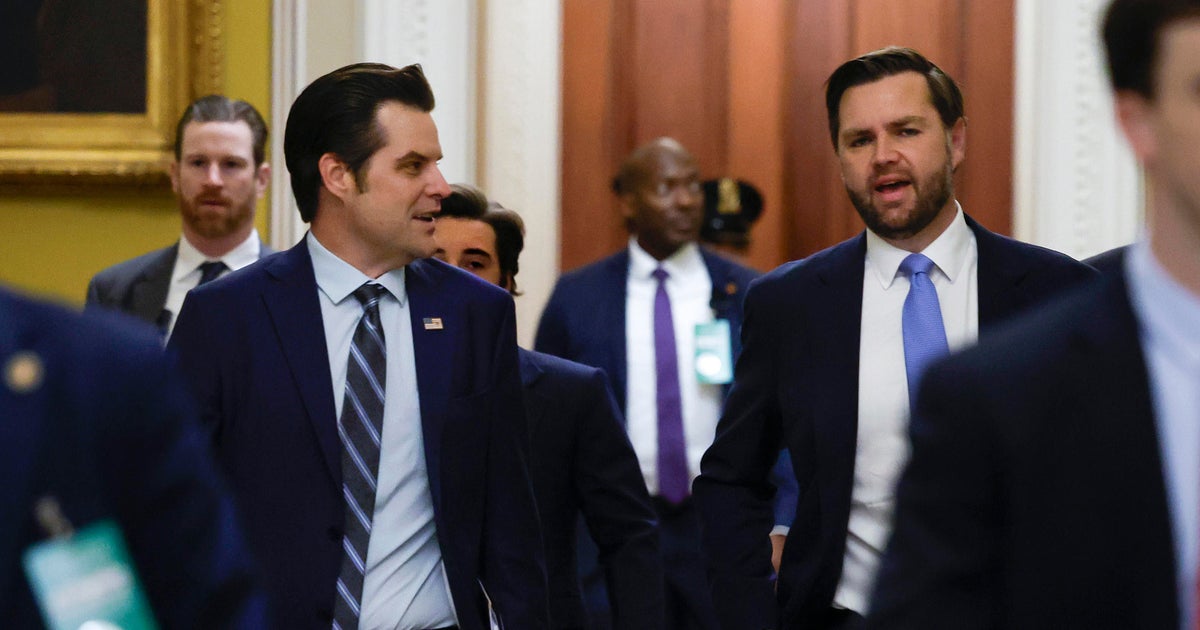Transcript: Sen. Edward Markey on "Face the Nation," June 10, 2018
President Trump and Kim Jong Un arrived in Singapore Sunday ahead of direct talks about North Korea's nuclear weapons program scheduled for Tuesday. The summit is the most highly anticipated meeting of world leaders in years, with high risk and reward possible for both sides.
Sen. Ed Markey, D-Massachusetts, is a member of the Senate Foreign Relations Committee. He joined us to discuss the summit, Mr. Trump's preparation for the talks and more.
The following is a transcript of the interview with Markey that aired Sunday, June 10, 2018, on "Face the Nation."
MARGARET BRENNAN: Welcome back to "Face the Nation," I'm Margaret Brennan. We're joined now by Massachusetts Senator Ed Markey. He sits on the Senate Foreign Relations Committee and is the top Democrat on the panel that focuses on North Korea policy. Senator welcome to the program.
SENATOR ED MARKEY: Thank you.
MARGARET BRENNAN: Because of the kind of oversight role you have, you keep a close eye on the State Department and Secretary of State who is with the president and presumably in the room what kind of promises have been made by this administration in terms of what they will share with Congress?
SENATOR ED MARKEY: We have not been included in any of the preparation for this negotiation. The Democrats have been kept in the dark in terms of what his approach is going to be. I think it would have been far better for him to have included us since it is a Democrat and Republican objective to have a negotiation and a direct negotiation between Kim and Trump. But thus far the president has not included Democrats.
MARGARET BRENNAN: What would it take to win your vote to lift sanctions so to speak. I mean if they get it any kind of agreement and it goes to the Congress what would change your mind?
SENATOR MARKEY: Well the president first of all is going to have to extract from Kim a definition of what denuclearization means. Right now there's a vast gulf between what the United States and North Korea believe that word means and in our- on our side we believe it means a removal of all nuclear weapons and delivery capacity on the Korean peninsula. Kim does not actually agree with that. We would also want an inventory of all of their nuclear weapons sites, all of their ballistic missile sites, all of their development, manufacturing, research facilities to be made public and for there to be a verifiable way of ensuring that there is a dismantlement of those facilities which is taking place again on a verifiable basis.
MARGARET BRENNAN: Would you want any agreement to come up for a vote in the Congress as a treaty? Something President Obama was criticized for not doing with the Iran nuclear deal.
SENATOR MARKEY: I would want to see that come forward as a treaty -because part of this negotiation will also be an ending of the Korean War- which is something that goes all the way back to 1953. So I think it would be wise for the president to come to Congress to ensure that there is - a ratification of any agreement which does take place between the North Koreans and the United States while not excluding, I just want to make this clear, the South Koreans and Japan. We cannot sell out our allies as part of this negotiation.
MARGARET BRENNAN: Would you - have an expectation that the president should seek consent and authorization for military force if these talks fail and he has and- and he looks at those other military options? We've heard from Senator Lindsey Graham today, a Republican, that he has an AMF drafted.
SENATOR MARKEY: There is no military solution to the problem that exists on the Korean peninsula. North Korea has nuclear weapons. -The United States has nuclear weapons. This isn't like the United States and Iran. Iran did not have nuclear weapons. Neither did Iraq. This would become very catastrophic very quickly. It-We have 28000 troops right on the demilitarized line. We have two hundred and fifty thousand other Americans within a 10 mile radius of that border. The casualties would mount up so quickly that it would exceed the first Korean War in terms of deaths to Americans- within the first few days and then it would just escalate from there. So this--
MARGARET BRENNAN: You would vote no if the president--
SENATOR MARKEY: The president--
MARGARET BRENNAN: --asked for you consent?
SENATOR MARKEY: What the president should do rather than looking for an authorization for the use of nuclear- of military force the president should come back to Congress and ask for even greater authority to put more economic sanctions on the North Koreans to really scre- squeeze their economy. The president is saying that he has already use maximum- pressure on the North Koreans. That is not so. There has been no cutoff of all of the crude oil that flows from China into North Korea. If we wanted to- we could put together an international coalition that demanded China to cut off that oil into North Korea to further intensify the pressure to come to the table to negotiate. A war is not in fact something that can be fought. Which is why I've introduced a bill that prohibits the president from a first use of nuclear weapons against North Korea if we have not been attacked by nuclear weapons from North Korea. That would be absolutely catastrophic. We need that debate in our country, a debate as to what the authority is—
MARGARET BRENNAN: Yeah.
SENATOR MARKEY: --of this president or any president to use nuclear weapons first.
MARGARET BRENNAN: I want to quickly ask you about - this tariff and trade war that we're now - talking about. Senator Corker says he wants to put into place some kind of restriction to keep the president from being able to ratchet up tariffs. Would you support such a measure?
SENATOR MARKEY: Yeah. Under Article 1 of the U.S. Constitution that's a prerogative of the Congress. Right now, the president is actually- driving our allies away from us as we need them even more, while welcoming in- the Russians. So I think the- conversation which Senator Corker has raised is something that on a bipartisan basis is welcome. I think it's time for- the United States Congress to begin once again to reassert its authority under Article 1 to play a key role in the imposition of any tariffs.
MARGARET BRENNAN: That sounds like a yes vote from you senator.
SENATOR MARKEY: Absolutely.
MARGARET BRENNAN: We'll be right back with our political panel so stay with us on Face the Nation.



